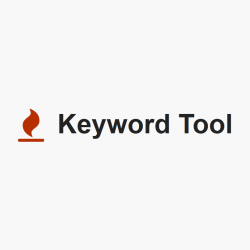Keyword research tool:A key component of successful SEO is keyword research. Using the appropriate keyword research tool can make all the difference, regardless of your level of experience as a marketer. Thankfully, you can find useful keywords, comprehend search intent, and improve your content strategy with the aid of a number of free keyword research tools.
Main Keyword: Free SEO Keyword Research Tools
Search Volume: Around 2,400 searches are made each month worldwide.
SEO Difficulty: Medium (KD 50–60)
Secondary Keywords: top free keyword research tools, SEO keyword research tools, beginner keyword research tools, and small business keyword research tools.
Best free Keywords research tools
Contents
- 1 Best free Keywords research tools
- 1.1 1. Google Keyword Planner
- 1.2 Primary attributes:
- 1.3 Advantages:
- 1.4 drawbacks:
- 1.5 2. Ubersuggest
- 1.6 Primary attributes:
- 1.7 Advantages:
- 1.8 drawbacks:
- 1.9 3. AnswerThePublic
- 1.10 primary attributes:
- 1.11 Advantages:
- 1.12 drawbacks:
- 1.13 4. WordStream Free Keyword Tool
- 1.14 Primary attributes:
- 1.15 Advantages:
- 1.16 Drawbacks:
- 1.17 5. Keyword Tool.io
- 1.18 Primary attributes:
- 1.19 Advantages:
- 1.20 Drawbacks:
- 1.21 The Best Ways to Use no cost Keyword Research Resources
- 2 Frequently Asked Questions (FAQs)
- 3 Are free tools for researching keywords enough for SEO?
- 4 How frequently should I conduct keyword research?
- 5 Can I use Google Keyword Planner exclusively for SEO?
- 6 What distinguishes long-tail keywords from short-tail keywords?

1. Google Keyword Planner
A well-known tool that offers information on keyword search volumes, levels of competition, and estimated bids is Google Keyword Planner. It can provide useful information for organic keyword research, but it’s especially helpful for people managing Google Ads campaigns(trafficthinktank.com)

Primary attributes:
- Data on search volume, level of competition, and estimated suggested bids(community.hubspot.com)(https://community.hubspot.com/t5/Content-Strategy-SEO/Best-tools-for-keyword-research-for-SEO-newbie/m-p/510802?utm_source=chatgpt.com), (arxiv.org)((https://arxiv.org/abs/2104.03065?utm_source=chatgpt.com))
Advantages:
Direct Google data that is entirely free and helpful for both sponsored and organic campaigns([zapier.com](https://zapier.com/blog/best-keyword-research-tool/?utm_source=chatgpt.com))
drawbacks:
- A Google Ads account is necessary. The data is more suited for sponsored search.(en.wikipedia.org) (https://en.wikipedia.org/wiki/Keyword_research?utm_source=chatgpt.com))
Best For: Marketers looking for trustworthy data straight from Google.
2. Ubersuggest
Neil Patel’s Ubersuggest provides a user-friendly interface along with extensive keyword data, such as search volume, SEO difficulty, and content ideas.((neilpatel.com) (https://neilpatel.com/ubersuggest/?utm_source=chatgpt.com)

Primary attributes:
- Suggestions for keywords, SEO difficulty ratings, content concepts, and backlink information(neilpatel.com)(https://neilpatel.com/ubersuggest/?utm_source=chatgpt.com))
Advantages:
- An easy-to-use interface that offers a variety of data, including competitor analysis(trafficthinktank.com) (https://trafficthinktank.com/best-keyword-research-tools/?utm_source=chatgpt.com))
drawbacks:
- The free plan has a daily search limit.
- A paid subscription is necessary for certain features.(trafficthinktank.com)(https://trafficthinktank.com/best-keyword-research-tools/?utm_source=chatgpt.com))
Best For: Novices and intermediate users seeking a comprehensive SEO tool.
3. AnswerThePublic
AnswerThePublic creates a visual representation of search queries and autocomplete searches known as a “search cloud.” It’s great for figuring out what your audience is asking.(seo.com)(https://www.seo.com/tools/keyword-research/?utm_source=chatgpt.com)(trafficthinktank.com)

primary attributes:
Data on questions, prepositions, and comparisons; a visual depiction of search queries(trafficthinktank.com)(https://trafficthinktank.com/best-keyword-research-tools/?utm_source=chatgpt.com))
Advantages:
Excellent for generating ideas for content; aids in comprehending user intent
drawbacks:
- The free plan has a daily limit on searches.
- The data might not be as thorough as that of other tools.(backlinko.com)(https://backlinko.com/best-free-seo-tools?utm_source=chatgpt.com))
Best For: Content producers looking for ideas based on actual user inquiries.
4. WordStream Free Keyword Tool
The WordStream tool estimates CPCs, displays competition levels, and suggests keywords. Because of this, it is beneficial for PPC and SEO campaigns.(wordstream.com)(https://www.wordstream.com/keywords?utm_source=chatgpt.com))

Primary attributes:
- Suggested keywords, level of competition, and estimated cost per click(wordstream.com)(https://www.wordstream.com/keywords?utm_source=chatgpt.com))
Advantages:
- Simple to use; offers data that can be used(trafficthinktank.com)(https://trafficthinktank.com/best-keyword-research-tools/?utm_source=chatgpt.com))
Drawbacks:
- Only the top 25 results are displayed without an email address.
- The data might be more PPC-oriented.(en.wikipedia.org)(https://en.wikipedia.org/wiki/Semrush?utm_source=chatgpt.com))
Best For: Quick keyword insights for small businesses.
5. Keyword Tool.io
Keyword Tool.io uses Google Autocomplete to generate hundreds of relevant long-tail keywords for any topic.(keywordtool.io)(https://keywordtool.io/?utm_source=chatgpt.com))

Primary attributes:
- It uses Google Autocomplete to generate keyword suggestions and supports a number of platforms, including YouTube, Bing, and Amazon.(trafficthinktank.com)]
Advantages:
- Excellent for finding long-tail keywords; basic use doesn’t require an account.(seo.com)(https://www.seo.com/tools/keyword-research/?utm_source=chatgpt.com))
Drawbacks:
- The free version has limited data; a paid plan is necessary for full access.(wordstream.com)(https://www.wordstream.com/keywords?utm_source=chatgpt.com), (zapier.com)
Best For: Long-tail keyword strategists.
The Best Ways to Use no cost Keyword Research Resources

- Combine Several Tools: Every tool has advantages. Combinations can yield a list of keywords that is more thorough.
- Emphasis on Long-Tail Keywords: These are more focused and less competitive, which raises the likelihood of ranking higher.
- Recognize Search Intent: Make sure the keywords match the search terms used by your target audience.
Update Your Keyword List Frequently: Keep your keyword strategy current because search trends change..
For such information read article on “How to build a responsive website using html and css“
Frequently Asked Questions (FAQs)
Are free tools for researching keywords enough for SEO?
A: Indeed, free tools offer enough information to create a successful SEO strategy for a large number of small to medium-sized websites.
How frequently should I conduct keyword research?
Yes, free tools offer enough information to create a successful SEO strategy for a large number of small to medium-sized websites.
Can I use Google Keyword Planner exclusively for SEO?
While it’s a valuable tool, combining it with others like Ubersuggest or AnswerThePublic can provide a more rounded perspective.(community.hubspot.com)(https://community.hubspot.com/t5/Content-Strategy-SEO/Best-tools-for-keyword-research-for-SEO-newbie/m-p/510802?utm_source=chatgpt.com))
What distinguishes long-tail keywords from short-tail keywords?
Long-tail keywords are more specialized expressions, like “best running shoes for flat feet,” whereas short-tail keywords are more general terms, like “shoes.”





